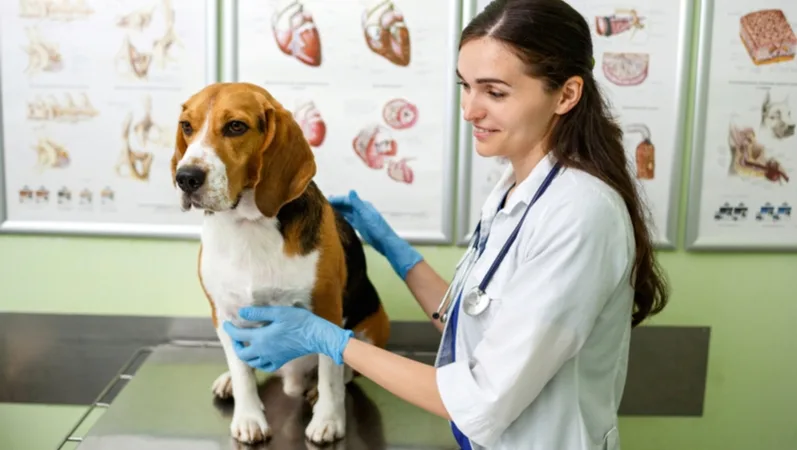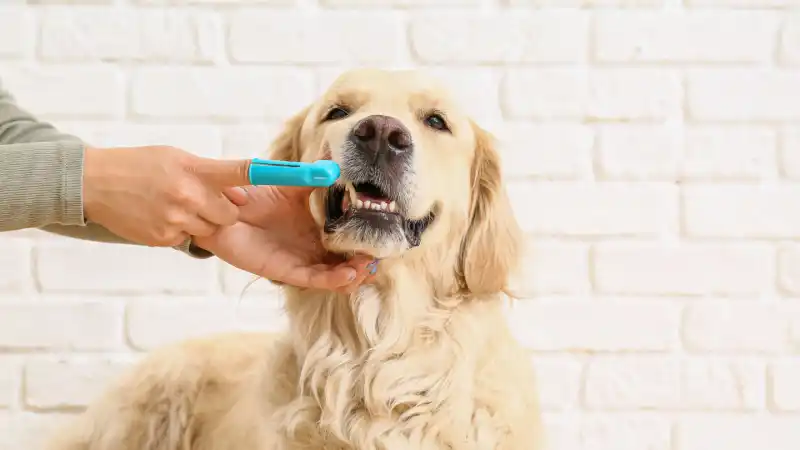How to Find the Perfect Veterinarian in My Area
Finding the best vet for your dog takes time. Lean on our essential list of qualities to look out for when identifying the right healthcare provider for your pet.

Providing a good home for your dog includes routine veterinary visits and other veterinary care as needed for illnesses or injuries. It might be easy enough to find vets in your area, but how do you know which one to choose? Having the best vet means you can expect quality care for your pet, which can give you peace of mind. Knowing how to choose a vet for your dog involves finding the right type, looking for certain qualities, and asking the right kinds of questions before making your decision. When you’re searching, “veterinarians in my area,” keep the following information in mind.
Find the Best Vet for Your Type of Pet
Types of Vets
When choosing the best veterinarian for your dog, you should first make sure you find the right type. Some vets provide care for certain kinds of pets, such as livestock or exotic pets, while others offer specialized care for different health problems. The main types of vets that are available include the following:
Companion veterinarians:
These vets are general practitioners who offer medical care for many types of pets, including dogs and cats. Companion vets provide routine care, such as annual wellness visits, as well as diagnostics and treatment for a wide range of illnesses and injuries.
Veterinary specialists:
These vets offer specialized care for pets, such as cardiology, orthopedics, dentistry, or oncology. Vet specialists receive advanced training in their field of study to provide this type of specialized care.
Laboratory veterinarians:
Some vets work in laboratories rather than caring for pets directly. For example, some of these laboratory vets study infectious diseases or conduct research on veterinary medicines.
For routine visits and acute illnesses or injuries, you should look for a companion vet for your dog. If your pet has a medical condition, such as a heart problem, or an injury or illness that requires surgery, the right vet specialist can provide this type of care.
First Things First: Get Pet Insurance
Having pet insurance can help take the stress out of unexpected vet bills. AKC Pet Insurance (underwritten by Independence American Insurance Company) makes it simple to customize a policy that meets your pet’s needs and your pet care budget. In addition to standard Accident and Illness coverage, pet owners can select from optional policy add-ons, like Exam and Wellness Coverage.
Finding a Veterinarian in My Area: Qualities to Look for
When you’re comparing vets in your area, look for ones who have the following qualities:
Up-to-date state licensing and Doctor of Veterinary Medicine (DVM) certification
Excellent communication skills
Extensive veterinary knowledge, including advanced or specialized knowledge if needed
Empathy and compassion
How to Choose a Vet for My Dog
When you know what to look for in a vet, it’s time to start searching for the best vet in your area. These steps can help you find a vet for your dog.
Assess Your Dog’s Needs
What kind of specific needs does your pet have in terms of medical care? You might look for a companion vet if your dog doesn’t have any known medical conditions or other health concerns. However, think about factors such as your dog’s health and age when choosing a vet. You might want to look for a vet who has experience caring for senior pets or pets with certain health conditions, for example. Perhaps when initially speaking to your breeder, they mentioned specific health concerns for your particular type of dog. Shop around for vets that have experience with either your breed or its unique conditions. Taking your dog’s needs into consideration can help ensure that you choose the best vet for their healthcare.
Check with Your Personal Network
Reach out to family, friends, neighbors, coworkers, and other people you know who have dogs. Ask them for recommendations for veterinary care in your area, so you can narrow down your options. Your personal network can be a valuable source of information about the quality of care that local vets provide.
Search Locally Using Review Centered Platforms
Online searches can pull up plenty of options for vets in your area, but do they provide quality care? Using online platforms with reviews about local vets can help you learn more about them and the kinds of experiences pet owners have had. Sites such as Yelp and Google have reviews available to help you get a sense of the kind of care different vets provide.
Schedule a Tour
Taking a physical tour of a vet’s office is an important step to take before choosing a vet for your dog. During these tours, you should check the cleanliness of the facility and the staff's professionalism. This can help you assess the condition of the vet’s office and the staff’s ability to provide quality care for your pet.
Request a Consultation with an Onsite Vet
A consultation with an onsite vet can provide you with insight into how they handle caring for their patients. During your one-on-one visit, you can get a feel for the vet’s bedside manner and their approach to medicine, such as providing traditional care or focusing on holistic care.
Come Prepared with Specific Questions
When you set up a consultation, bring a list of questions with you. The questions on your list should be specific ones that provide you with important information about the vet you’re meeting.
Questions to Ask Veterinarians
Before choosing a vet for your dog, you should gather as much information as possible. Asking the right questions can help you compare vets and choose the best one for your pet. When calling different veterinary practices, be prepared to ask the following questions.
How Many Doctors Are at Your Practice?
A practice with multiple vets might make it easier to schedule an appointment, as long as you don’t mind which vet sees your dog. If you prefer having the same vet see your dog for each visit, you might look for a practice with fewer doctors.
Do You Have On-Call Hours?
Illnesses and injuries can occur at any time, not just during regular vet office hours. A vet with on-call hours means you can get in touch with them when you have questions or concerns about your pet instead of having to wait until normal office hours. Some vet offices might offer after-hours care for urgent illnesses or injuries.
What Is Your Emergency Policy?
Knowing your vet’s emergency policy ahead of time is important in case your pet has a sudden injury or illness that requires immediate care. Some veterinary practices offer emergency care during normal office hours, but you might need to bring your pet to the nearest animal hospital for emergency care after hours. Other vets might provide information on whom to call or where to go for immediate care if you have an emergency when their office is closed.
Do You Work with Specific Veterinary Specialists or Laboratory Vets?
From blood tests and other lab work to specialized care for medical conditions, seeing a vet who works with specific veterinary specialists or laboratory vets can be helpful. Knowing that your vet works with veterinary professionals who they know and trust can be reassuring when your pet needs care.
Take some of the stress out of pet ownership with Accident & Illness Coverage from AKC Pet Insurance (underwritten by Independence American Insurance Company). Our pet insurance plans are designed to be there when you need them, allowing you to focus more on the health of your pet and less on costly veterinary bills.

Every Dog and Cat Deserves the Pet Insurance of Champions
Get prize-winning care for your pets.



